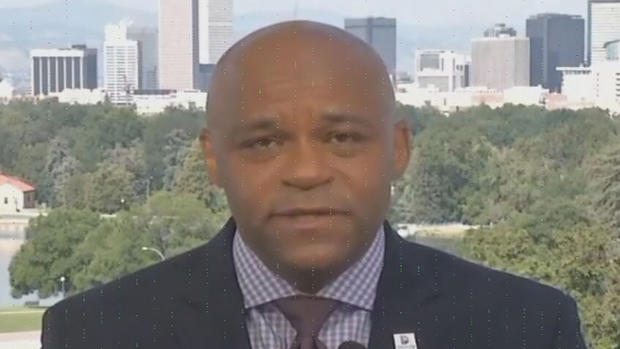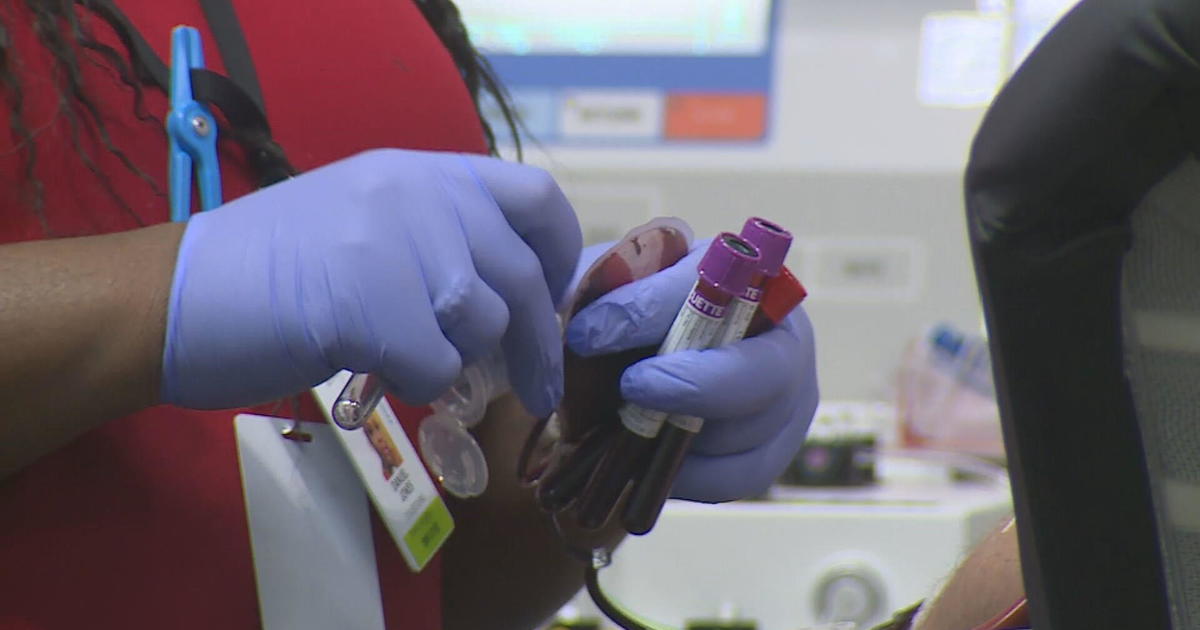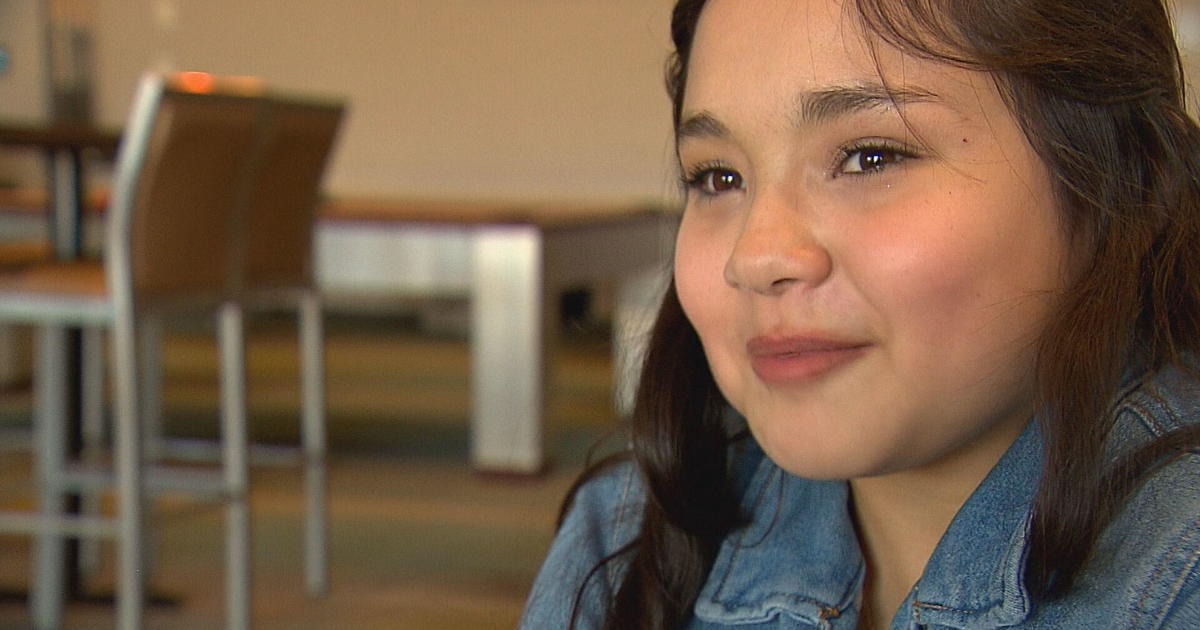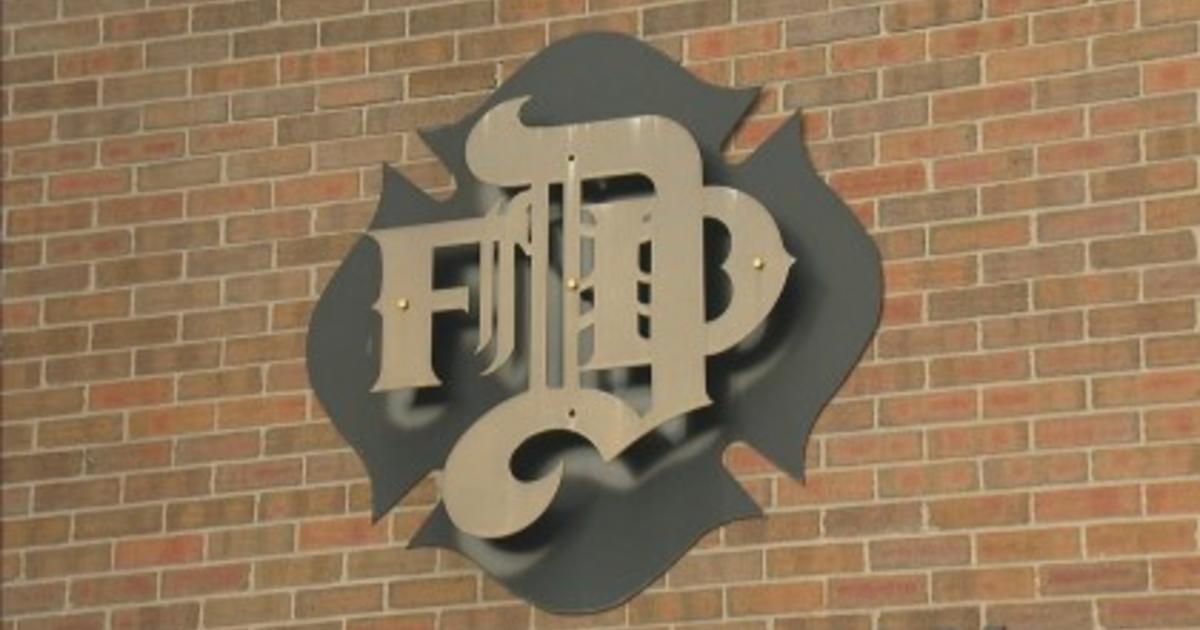State Of The City: Denver Mayor Discusses COVID-19 Fallout, Police Enforcement And Homelessness
DENVER (CBS4) -- Denver Mayor Michael Hancock delivered the annual State of the City address Monday. Mayor Hancock discussed the city's response to the coronavirus pandemic and the economic impact, racism, police enforcement and helping people struggling with homelessness.
Read his full statement:
Denver:
We're doing the State of the City address a little differently this year, because, for now, the best way to be together is to be apart. And staying together, as a community, is more important than ever before. In these last few months, we've faced uncertainty, upheaval and loss. But we have also acted with resolve. Resolve to define together what a better city looks like – and attain it. The resolve to create a better future, where we elevate the commonality of the human experience in our decision-making.
That's what resolve and coming together means, especially at a time when we're faced with a global pandemic. We've lost over 300 of our residents and more than 1,600 of our fellow Coloradans. COVID-19 has threatened our healthcare system and quality of life. It has wreaked havoc on our economy and left thousands unemployed. But you have shown resolve.
We asked you to put your daily lives on pause to keep our hospitals from being overwhelmed. Grocery store workers, sanitation workers, doctors, nurses and first responders carried us on their shoulders. Hundreds of city employees reported to the emergency operations center or were redeployed to other roles, demonstrating courage and commitment to the single goal of saving the city.
We stood up two 24-hour shelters in record time and leased hundreds of motel rooms to protect our neighbors experiencing homelessness. We worked around the clock to bring in millions of masks, face shields, gowns and gloves to support those working on the front lines. Without a national strategy for testing, we stood up the Pepsi Center testing site, Colorado's largest and busiest testing site. At that site, and from our mobile testing unit and community testing sites around Denver, we've helped tens of thousands of people get tested.
I'm proud of Denver's resolve and response to this pandemic. We were among the first to take the painful action to stay at home, and mandate face-coverings. City employees, partners, residents – everyone did what was necessary to save the city. Thank you.
But this is far from over, and I'm asking you to stay the course. The risk of politics interfering in our recovery is too great. A mask isn't a political statement. Social distancing isn't an attack on freedom. These temporary public health measures are about social responsibility, yours and mine – to ourselves, each other and the welfare of our city, state and nation.
It's about saving lives. It's about recovering our economy so that those who have been furloughed or laid off can get back to work and caring for their families. Politics shouldn't get in the way at a time when politics needs to be set aside. But no matter what happens in Washington, our decisions will continue to be based on science.
COVID-19's economic toll has also been far-reaching. Here, too, we mobilized city government to provide financial support to over 800 small businesses. As residents faced job losses, we were ready with rent and mortgage support to help people stay in their homes. We brought together leaders in key industries to strategize the relief needed to help people and local businesses stay on their feet. With restaurants re-opening, we wanted them to be able to do so safely with PPE kits and expanded outdoor spaces. We rallied the community to support our neighbors in need with food drives and free testing.
We need to maintain our resolve, because as we've seen over the past few weeks, we do not want to become the next national hotspot. We're working now to ensure a six-month reserve of personal protective equipment going into the fall when we won't only be dealing with COVID-19, but the flu as well, putting additional pressures on our hospital system. And our Long-Term Recovery Committee has developed a Recovery Action Plan to support our workers, businesses and workplace safety, address public health disparities, and ensure community feedback and equity in our recovery efforts. Responding to this pandemic will continue to take all our efforts – it's not going away any time soon.
Where we are today isn't where we thought we'd be back in January. But know this: we will come back better than we were before. I know this because we have done it before. We did it after the Great Recession when we took Denver from one of the toughest economies in the country to one of the best.
We know how to create jobs and grow an economy. But this recovery must have a social conscience. We understood this before COVID-19. We've been laying the foundation for a more just economy: Raising the minimum wage, making record investments in affordable housing and services for those experiencing homelessness, and reshaping the city's focus to bring more equity to zoning, where new parks should go, expanding mental health services and improving transportation.
Our challenge now is to make this foundation even stronger, and we will. Our strong financial practices over the last decade provided a reserve to help mitigate the impact off a moment like this. But due to the pandemic's disastrous disruption of the city's revenue streams, we do have a $227 million budget shortfall to tackle, and it will mean hard cuts.
We're going to maintain the essential services you depend on, while making where we can investments to strengthen the social fabric of our city. We're approaching all of these financial challenges with an equity lens, so the people working hardest, who've been hit the hardest, don't face the brunt of it alone.
And I will continue to call on Congress to do what needs to be done: like immediately renewing unemployment benefits for our neighbors out of work and passing direct aid to cities and states. Cities account for 91 percent of this country's GDP. Cities are this country's economy. Our local recovery must be supported if there's going to be a national recovery.
Clearly, we have an economy to rebuild, but we need to do it with more opportunity for the people of our city. Here's where we're going to start. We're going to keep our other public projects on track and work to accelerate our bond and critical infrastructure programs where resources are already secured, providing opportunities for small, women- and minority-owned businesses, to get people back to work while making neighborhood improvements sooner. We're going to drive a good jobs strategy: better pay, better benefits and better advancement opportunities. In partnership with the business community, we're well on our way to creating employment and training opportunities in emerging industries and new pathways for all residents of Denver.
We're going to remove barriers holding back our residents from the prosperity they've earned, starting with waiving fees and speeding up approvals for five affordable housing projects and five green projects to show where our priorities are. And we're going to embrace the green economy. It's an opportunity to build, from the ground up, an entirely new industry sector, create good jobs for people, lower families' utility costs, and begin to correct the health and environmental injustices in our communities impacted the most.
Along with the pandemic and economic threats, crime is a growing risk. No one, particularly children, should feel unsafe in their neighborhood. The rise in crime, particularly youth violent crime, is unacceptable. It's a troubling trend not just in Denver, but nationwide. I will never allow it to be normalized in our city.
Three weeks ago, I joined about 150 residents for a march organized by the courageous and dynamic youth leaders from the 10 for 10 organization. These leaders expressed the fear and trauma young people are living with every day. Instead of enjoying the summer months full of first job experiences, being with friends, or preparing for new adventures in school, our young people are mourning lives lost, and fearing for their lives. Their pain was real and their pleas for help were searing.
We need people to put down their guns. And we must move beyond rhetoric.
We need to get at the root causes of this problem once and for all. That's why I've directed members of my administration, led by City Attorney Kristin Bronson, to work with youth and youth-serving organizations to create a community-driven plan to support them. Our efforts must be more than just anti-youth violence, they must be comprehensive strategies to promote and develop healthy youth and productive adults. It must be addressed from a public health perspective, not just a law enforcement perspective. Once and for all, we must create healthier and safer environments for our children and youth in Denver.
We must also live up to our moral obligation to provide more than just a place to sleep for our neighbors experiencing homelessness. I know homelessness is top of mind for all of us. The encampments that have appeared don't represent the humane approach we have followed for years. Addressing encampments during the pandemic, following CDC guidelines and caring for those from surrounding communities has complicated the challenge.
We have never stopped working toward better ways to address the conditions of those experiencing homelessness, and we aren't stopping now, but these encampments cannot persist. COVID-19 is an extraordinary circumstance requiring an extraordinary response. That's why we are permitting temporary – and I emphasize temporary – Safe Outdoor Spaces in more managed, safer, and sanitary conditions where people can be connected to critical services.
Last year, when 80 percent of Denver voters rejected a repeal of Denver's ordinance prohibiting encampments, we said we could do better. And we can do better. I'm asking everyone to support a proposal brought forward by Councilwoman Robin Kniech and our city's shelter operators and service providers, to deliver the funding necessary to create better shelters, expanded services, and more housing options.
There is an uncomfortable truth about the challenge of homelessness in our society. It's the same truth underlying the challenge of income inequality, a hollowed-out middle class, an alarming disparity in access to opportunity, and the challenges of mental health and poverty. It's not just a Denver challenge, it cries out for a coordinated national, state and regional response. To those who think homelessness is just a Denver issue, I invite you to consider the commonality of our humanity and the power of collective action. That is the only way it will be finally resolved.
These times have created another uncomfortable, hard truth we must finally face: the hard truth that racism is still a problem in law enforcement across the nation. It cannot be ignored. And we have not ignored it in Denver.
We have one of the best police and sheriff departments in the nation. These departments are made up of men and women from many backgrounds who have taken the oath to serve and protect everyone in this city. In these trying times, it needs to be said that the vast majority of our officers and deputies uphold that oath with professionalism, compassion, integrity and a commitment to excellence.
However, across this nation, and many painful times in our community, some have disgraced the badge through their actions and severely damaged the public trust. I can tell you firsthand, these actions have left generations of people, particularly Black people, having a profound fear and distrust of law enforcement. This is a breach in the covenant, and as the prophet Isaiah teaches us, "We must be repairers of the breach, restorers of the streets we live in."
Since becoming mayor, my administration has been focused on building a more community-oriented public safety approach. Early on, we rewrote the discipline matrix to increase accountability. We undertook a complete reform of our sheriff department operations, policies and trainings. Under the leadership of Chief Paul Pazen, we've expanded the co-responder program to help people in crisis, not arrest them. We've recently started a pilot program, which if successful will be expanded, that does what many are calling for today – dispatching health professionals and social workers to certain 9-1-1 calls instead of an armed officer.
Since 2017, DPD has required all officers, both on and while working off duty, to wear body cameras, one of the first departments in the country to do so. And the Sheriff Department will be equipped with body cams this year. In partnership with the community, Denver Police rewrote and trained for a more progressive use of force policy in 2018 to focus on de-escalation. Through the Department of Safety's opportunity index, we're working at getting at the root causes of crime instead of just the outcomes. And as an example of that, many officers now carry food in their cars to help people in need.
We've been moving in the right direction, and we hear the urgent call to move faster. Chief Pazen, public safety director Murphy Robinson and our new Sheriff, Elias Diggins, hear you. I hear you. And I believe the men and women who make up these departments hear you.
We must listen, then we must have dialogue, and finally, there comes a time when we must act. I have asked Chief Pazen and Director Robinson to lead our efforts to listen and dialogue earnestly with the community, and as we've done before, continue to improve our policing in Denver. Slogans aren't actions, and we should be careful with calls to "defund" the very programs and initiatives that make Denver an innovator in reform, with a police department that has dedicated and experienced officers who know how to combat crime.
For years, I have been frustrated by our society's inability to effectively address racism. But we must understand that to begin a debate about racism and its generational impacts by zeroing in on the actions of law enforcement, is to acknowledge just one symptom of a virus that is killing us. Excessive and deadly force by law enforcement disproportionately towards people of color is a symptom of the deadly virus – racism.
Let me frame for you the historic and present pain and frustration that has compounded for generations. It's about: the African slaves on breeding farms who built an entire country and economy; the lynched black man during Jim Crow and Mexican Americans across the Southwest; the incarcerated black mother; the deported immigrant parents separated from their children; the Japanese American family in internment camps; the native land that was stolen and communities extinguished; the maids and busboys who had the skill and wisdom of lawyers and doctors, but held down by second-class schools or blocked by discriminatory admissions systems; the hidden black and brown figures who have created and contributed to our scientific and technological advancements without attribution; the hardworking professional of color, who is never quite good enough for the promotion.
This moment represents justice and progress for their sacrifice, their tears, their strength, their pain, their fight. An unrelenting call and unapologetic demand for redemption, atonement and a better world and future.
Let's be honest. Racism brought to this hemisphere over four centuries ago, through the original sin of slavery, still impedes our progress as a society. Like COVID-19, the impacts of racism don't discriminate – it infects and impacts all of us. Institutional racism is prevalent, evident by the over incarceration of people of color, the blatant profiling of African Americans and even the disproportionate impact of COVID-19 on communities of color. We have the painful examples of this fact in the brutal killing of a sleeping Breonna Taylor in her own home, Elijah McClain for just walking home and George Floyd for allegedly passing a counterfeit $20 bill.
Just like with COVID-19, until we're brutally honest about the true virus, we will never end the systemic devaluation of the lives of African Americans and other people of color, the lives of LGBTQ people, the lives of immigrants or those of differing faiths.
Racism is a public health crisis.
We must finally address it like we do every public health crisis. We need the vaccine.
Like any disease or virus infecting our society, we need to urgently deploy the best minds and research to properly identify the virus, its causes and consequences, and develop the right vaccine. I have started the process of establishing the Denver Institute of Equity and Reconciliation through public-private partnerships. Over 50 people, some of the brightest minds in academia; civic and civil rights; faith leaders; diversity, equity and inclusion experts; and public safety experts have joined me in this effort. Our vision is for this institute to become the national leader in research of racism, bias, inclusion, practices of reconciliation, and development of programs and trainings for law enforcement, and the public, private and education sectors. Finally, it's my hope it will be the physical location where direct and honest conversations about racism will be held. We'll have more on this initiative soon.
This city behind me – our city is full of possibilities. Possibilities that you helped shape. With resolve, we will come out of this better than we were before. It's going to take hard work. But we can do it, and I have hope. Moving forward together and getting through these times together does not mean that we will always agree. Disagreement is natural and healthy. Dysfunction is not. And if there was ever a time when people needed functional, collaborative and effective government, surely, it's now.
Whether in Washington or Denver, our recovery depends on government that works, and an open, transparent collaboration with the people. We're not a city defined by what's wrong with us, we're a city defined by what's right, what we can make right, and by doing what's right. A more equitable community where everyone has an opportunity to thrive and where our diverse neighborhoods create welcoming communities defined by our character.
So, let's take a little advice from the late, great John Lewis – let's make some good trouble.
It won't be long before the markings of protests are washed over, when COVID-19 has been contained through a vaccine, when our economy is reignited, when children can return to the classroom. What will remain is how we will co-exist together, survive together, dream together. This is the opportunity to once and for all triumph over disease and hate, and rise as a society bonded together by our mutual fellowship and hope. I look forward to locking arms with you in triumph.
Thank you, God bless you, and God bless the City and County of Denver.




